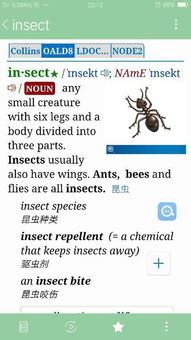Insect Bite: A Detailed Look at the Enormous Swelling
Have you ever experienced a tiny insect bite that turned into a massive swelling? It can be quite an unsettling experience. In this article, we will delve into the reasons behind such a reaction, the symptoms to look out for, and the best ways to manage and prevent these reactions.
Understanding the Insect Bite

When an insect bites, it injects its saliva into your skin. This saliva contains enzymes and other substances that help the insect digest your blood. However, for some people, this saliva can trigger an allergic reaction, leading to swelling and other symptoms.
Common Causes of Enormous Swelling

Several factors can contribute to the development of a huge swelling after an insect bite. Here are some of the most common causes:
| Factor | Description |
|---|---|
| Allergic Reaction | Some individuals have an allergic reaction to the insect’s saliva, leading to a severe immune response. |
| Bacteria Infection | Bacteria can enter the wound created by the insect bite, causing an infection and subsequent swelling. |
| Location of Bite | Bites on sensitive areas, such as the face or genitals, may cause more significant swelling. |
| Age | Children and the elderly are more susceptible to severe reactions due to their weaker immune systems. |
Recognizing the Symptoms

After an insect bite, it’s essential to be aware of the symptoms that may indicate a severe reaction. Here are some common signs:
-
Enormous swelling around the bite area
-
Redness and warmth in the affected area
-
Pain, itching, or tingling around the bite
-
Difficulty breathing or swallowing
-
Severe dizziness or fainting
-
Abdominal pain or cramping
Managing the Swelling
When dealing with a huge swelling from an insect bite, there are several steps you can take to manage the symptoms:
-
Wash the bite area with soap and water to prevent infection.
-
Apply a cold compress to reduce swelling and numb the area.
-
Take over-the-counter antihistamines to relieve itching and swelling.
-
Keep the affected area elevated to reduce swelling.
-
Seek medical attention if symptoms worsen or if you suspect an allergic reaction.
Preventing Future Reactions
While it’s impossible to prevent all insect bites, there are steps you can take to reduce your risk of a severe reaction:
-
Use insect repellent when spending time outdoors.
-
Wear protective clothing, such as long sleeves and pants, in areas with high insect activity.
-
Keep your home and yard free of standing water, which can attract mosquitoes and other insects.
-
Be cautious when camping or hiking in areas known for insects.
-
Consult with a healthcare professional if you have a history of severe allergic reactions.
In conclusion, a tiny insect bite can lead to a massive swelling for some individuals. By understanding the causes, recognizing the symptoms, and taking appropriate measures to manage and prevent future reactions, you can minimize the impact of these bites on your life.




